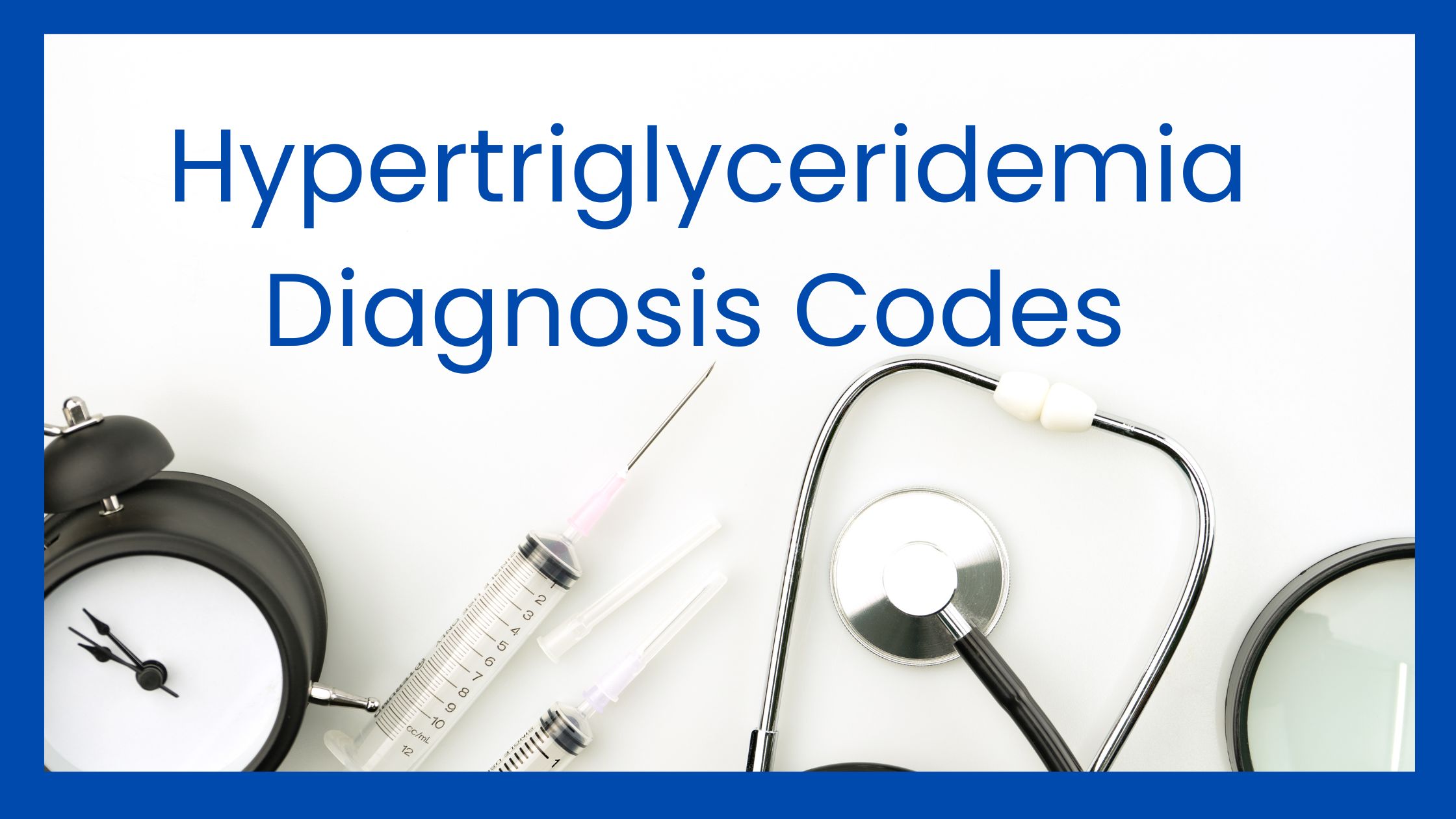Hypertriglyceridemia ICD 10 code is E78.1, is a crucial alphanumeric identifier in medical coding. This code serves as a gateway to understanding and categorizing elevated levels of triglycerides in the bloodstream, providing healthcare professionals with a standardized language for diagnosis and billing.
- E78.1 Pure hyperglyceridemia:
- This code is used to classify disorders characterized by an elevation of triglycerides in the blood, without a significant increase in cholesterol levels.
- E78.2 Mixed hyperlipidemia:
- This code is used for conditions where there is an elevation of both cholesterol and triglyceride levels in the blood.
- E78.3 Hyperchylomicronemia:
- This code is used to describe a condition characterized by an increase in chylomicrons in the blood, leading to elevated triglyceride levels.
- E78.4 Other hyperlipidemia:
- This is a general code for other specified hyperlipidemia conditions that don’t fit into the previous categories.
- E78.41 Elevated Lipoprotein(a):
- This code specifically refers to an elevation in Lipoprotein(a) levels, which is a type of lipoprotein associated with an increased risk of cardiovascular disease.
- E78.49 Other hyperlipidemia:
- This is a more general code for other specified hyperlipidemia conditions not covered by the previous subcategories under E78.4.
- E78.5 Hyperlipidemia, unspecified:
- This code is used when the healthcare provider diagnoses hyperlipidemia but does not specify the type.
- E78.6 Lipoprotein deficiency:
- This code is used for conditions where there is a deficiency of lipoproteins in the blood, which play a crucial role in transporting cholesterol and triglycerides.
- E78.7 Disorders of bile acid and cholesterol metabolism:
- This code is used for disorders that affect the metabolism of bile acids and cholesterol, potentially leading to abnormal levels in the body.
- E78.70 Disorder of bile acid and cholesterol metabolism, unspecified:
- This code is used when the specific disorder affecting bile acid and cholesterol metabolism is not specified.
- E78.71 Barth syndrome:
- Barth syndrome is a rare genetic disorder that primarily affects males. It is characterized by cardiac and skeletal muscle abnormalities, growth delay, and neutropenia (a low count of neutrophils, a type of white blood cell).
Also Read: Hyperlipidemia ICD 10 Code
Symptoms of Hypertriglyceridemia
Hypertriglyceridemia itself does not typically present with specific symptoms. However, extremely high levels of triglycerides can lead to pancreatitis, a condition characterized by severe abdominal pain, nausea, and vomiting. Pancreatitis requires immediate medical attention and can be life-threatening if left untreated.
Diagnosis of Hypertriglyceridemia
A simple blood test known as a lipid profile can measure triglyceride levels. Generally, fasting for 8-12 hours before the blood test is required to obtain accurate results. The following triglyceride levels are commonly used for diagnosis:
– Normal: Less than 150 mg/dL
– Borderline high: 150-199 mg/dL
– High: 200-499 mg/dL
– Very high: 500 mg/dL or above
Treatment and Management of Hypertriglyceridemia
1. Lifestyle Modifications:
Also Read : Hypercholesterolemia ICD 10 Code E78.00
In conclusion, hypertriglyceridemia is a condition characterized by elevated levels of triglycerides in the blood. Lifestyle modifications, such as adopting a healthy diet, engaging in regular exercise, and maintaining a healthy weight, play a crucial role in managing this condition.
FAQs on Hypertriglyceridemia ICD 10 Code
Is Hypertriglyceridemia the Same as High Cholesterol?
Hypertriglyceridemia primarily involves elevated triglyceride levels, while high cholesterol encompasses various lipids. While related, they are distinct conditions with different diagnostic criteria and management strategies.
Can Lifestyle Changes Alone Manage Hypertriglyceridemia?
In many cases, yes. Adopting a healthier lifestyle can significantly impact triglyceride levels. However, individual responses may vary, and healthcare professionals might recommend additional interventions.
Are There Natural Remedies for Hypertriglyceridemia?
While lifestyle changes are considered natural remedies, specific dietary adjustments, such as incorporating omega-3 fatty acids, may also contribute to managing triglyceride levels. However, always consult with a healthcare professional before trying alternative approaches.
What Role Does Genetics Play in Hypertriglyceridemia?
Genetics can significantly influence triglyceride levels. Individuals with a family history of hypertriglyceridemia may have a higher predisposition. Genetic testing and counselling can provide valuable insights for personalized care.
Related Articles:
Obesity Care Plan: Proactive Measures and Preventive Action
ICD-10-CM Dx Code Z13.220 | ICD-10 Code For Lipid Panel
The author and contributor of this blog "NSingh" is working in Medical Billing and Coding since 2010. He is MBA in marketing and Having vaste experience in different scopes of Medical Billing and Coding as AR-Follow-up, Payment Posting, Charge posting, Coding, etc.

